Panic in Phuket: My Tsunami Experience
Articles on this site contain affiliate links, meaning I may be compensated if you buy a product or service after clicking them. The full privacy & disclosure policy is here.In a few seconds everything changed.
An abrupt announcement over the loudspeakers.
The strangely peaceful sound of many hundreds of people drawing breath in a collective gasp.
And then…
Total panic.
A huge earthquake had hit off the coast of Sumatra an hour earlier, but we remained blissfully unaware. After a wonderful week relaxing on Koh Yao Noi, we were on a little ferry enroute to Phuket as the sea floor tore itself to pieces 850km away.
I didn’t feel a thing.
We didn’t hear anything about it until we were in a taxi headed towards the airport. Briefly pausing the blaring Maroon 5 album that had thus far dominated our ride, our driver turned and asked if we had felt the quake.
“Was it a small one or a big one?” I asked.
“Big,” she said. “Lots of shaking.“
That didn’t sound good. Ever since the devastating Boxing Day tsunami in 2004 that killed close to quarter of a million people, earthquakes in this region are a major concern. Still, the roads were clear and there were no signs of damage to any of the houses I could see. I quietly crossed my fingers and hoped everything would be fine when we got to the airport.
Besides, we had about four hours before our flight was due to depart. What was the worst that could happen?
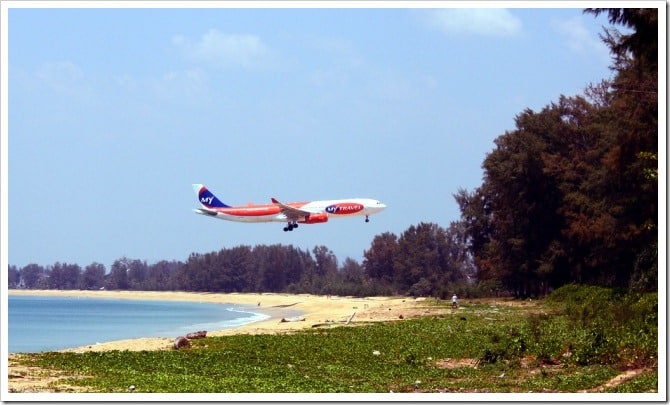
Pulling up outside the terminal, I couldn’t help but notice many people in uniform gazing out over the runway. Were they checking for damage? I couldn’t tell, but apparently the airport was still open. A plane slowly taxied away from the gate, as if to confirm the assessment.
Joining the security queue at the door, my mind turned to how I was going to fill the next few hours. There was a book I wanted to finish, and I was considering eating some of the over-priced slop that passes for food there. We dumped our bags on the scanner, and wandered through the metal detector on auto-pilot, following the same mindless routine as at every other airport on the planet.
And then the shit hit the fan.
I looked up to see every single person in the airport running straight towards me. Shouts and screams preceded them, and the curt instructions from the nearby security guard told me what the announcement in Thai had not. “Get out. Now.”
Scooping up my carry-on bag, I made for the exit, the shoves of panicked tourists behind me adding to the stress of the situation. Apparently remaining calm in an emergency wasn’t an option. Arms waving and voices raised, hundreds of people spilled out of the doors. In an instant Lauren and I were separated. I didn’t see her again for at least an hour. It was one of the longest hours of my life.
I milled around outside the terminal for a while, trying to figure out what was going on. Nobody really seemed to know, although a few people mentioned a second earthquake. I hadn’t felt anything, but that didn’t mean much. Eventually someone in uniform showed up, pointing us out towards the main road. “That way. 20 minute walk.”
At this point I realised things were getting serious. The chances of getting on a plane that day were receding faster than the stream of people heading away from the airport. I briefly considered trying to reclaim my backpack from inside the security scanner, but one look at the guys locking the doors told me I wasn’t getting back inside the terminal any time soon.
And so, just like everyone else, I walked away.
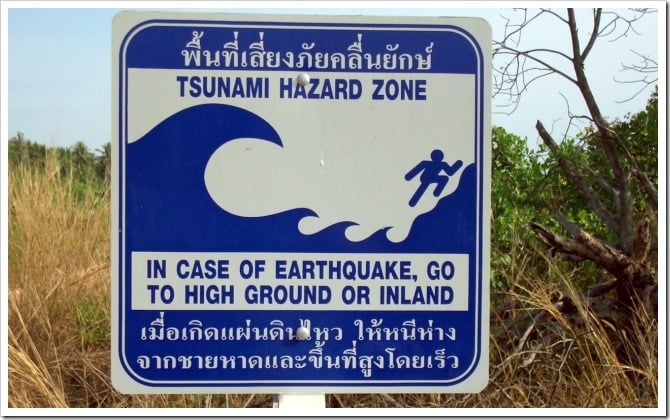
Heading north beside the runway, the narrow road became quickly congested. Pickup trucks stuffed with locals jostled for space with families on scooters, while scared passengers with suitcases just tried to stay out of the way. There weren’t too many signs of outright panic to start with, but as the word tsunami began to be spoken aloud, things changed.
Some started to run. A woman sobbed beside me, her husband dragging her along by the arm. Families begged for a ride in vehicles with no space, and wailed when they were turned down.
People were terrified.
Finally making it to the (slightly) higher ground of the evacuation zone, it took me a few minutes to find Lauren among the crowds. Holding me and crying, she told me of her own walk twenty minutes earlier. Somehow she had managed to get back inside the airport before it was locked down, throwing our bags onto a trolley and pushing it all the way to where we now stood. I would have hugged her, had I not been doing so already.
She was exhausted, physically and emotionally, but eventually calmed down enough to ask a simple question: what happens now?
I had no idea. Rumours were flying around the crowd, misinformation being spread far and wide. The sea had receded a kilometre. A two four six metre tsunami was headed our way. We were safe. No we weren’t. People would be trapped in their hotels for days.
In short, nobody had a clue. The authorities were doing their best, providing water — and later, food — to everyone, but they couldn’t provide the one thing people were most hungry for: information. Every noise made people jumpy, and the crescendo of a small plane rolling down the nearby runway sounded just like an approaching wave in our overwrought imaginations.
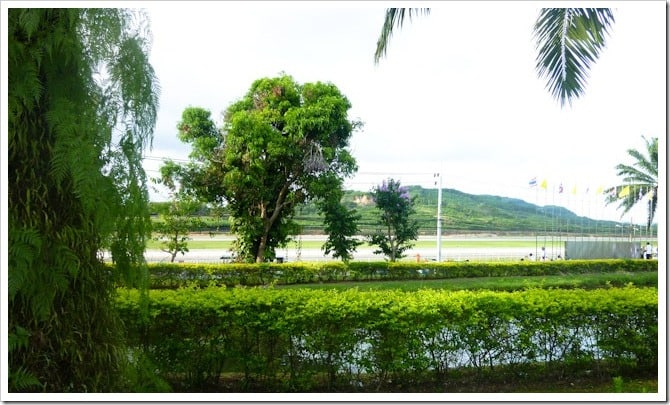
Day turned to night, and still we waited. The estimated time for a tsunami impact had long passed. Did it hit land? Was there a second one on the way? Nobody could say for certain.
Finally an announcement was made that the worst had passed, and if there were no further quakes, we would be free to go in two hours. The airport would not reopen that night, and buses would turn up at some point to take us to Phuket Town. The prospect of fighting it out for late night accommodation with hundreds of others was unappealing, but hey, it could have been a whole lot worse.
Suddenly, another announcement. Four hours after it closed, the airport was going to reopen. Some of the airport staff got into minivans and headed away. Officials with loudspeakers started to move through the crowd. Things were happening. Ignoring the logjam of people waiting to board a bus, we walked back down the road, grateful — not for the first time — to be carrying backpacks rather than anything else.
Happy to be alive, we almost danced back through security and into the terminal. Even discovering that every domestic flight was cancelled didn’t seem like a big deal by then. We found a slightly comfortable piece of floor, and prepared to wait it out. There was no need for entertainment — the crowds of rude people shouting at the hapless airline staff was better than any soap opera. Apparently the relief of narrowly avoiding a natural disaster hadn’t lasted long.
Leaving Lauren to stare catatonically at the wall, I checked back at the information desk all through the night. Nobody quite knew what was happening, or whether another plane would turn up the next day for the stranded passengers. With every plane to Chiang Mai fully booked, it started to look like we might be stuck there a very long time.
Exhausted and smelly after a night on the floor, however, we somehow had a stroke of luck. Perseverance and a smile meant we managed to snare a standby seat on the first flight in the morning. With the ever-present risk of aftershocks closing the airport again, I felt a tangible sense of relief as the runway finally disappeared below our wheels.
It had been a hell of a day. After eighteen hours of fear, uncertainty and tears, we could finally relax a little. The only water in our immediate future was the upcoming Songkran festivities, a multi-day water fight to celebrate the Thai New Year.
That, at least, we could handle.
If you’d like to read it, Lauren has also written an account of her tsunami experience. Caution: it may contain a large number of highly dramatic moments…
Images via Andy_Mitchell_UK (Plane at Phuket airport) and m.a.r.c. (tsunami sign)

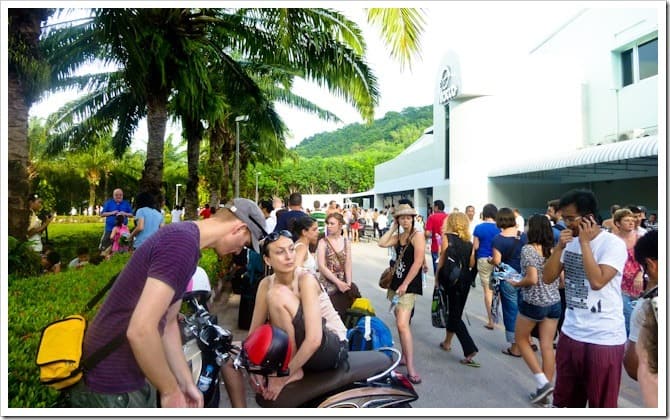
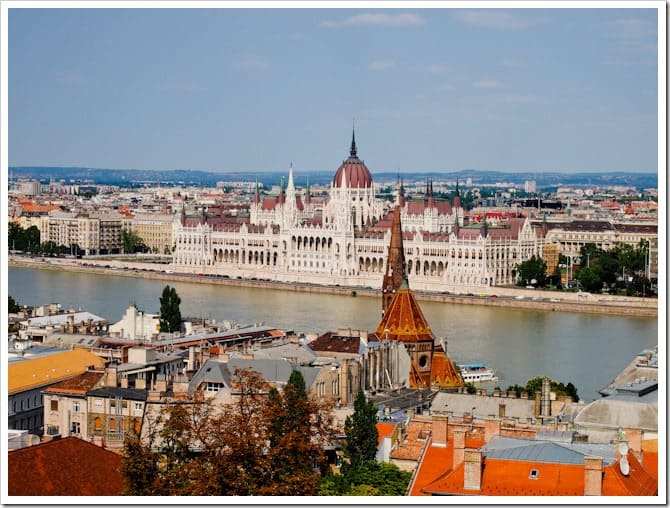
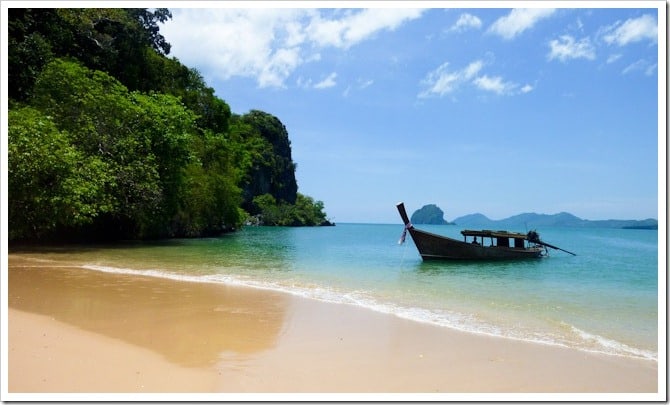
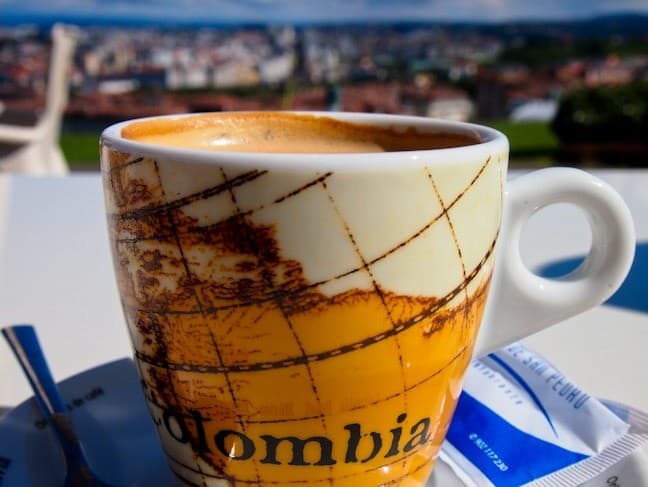
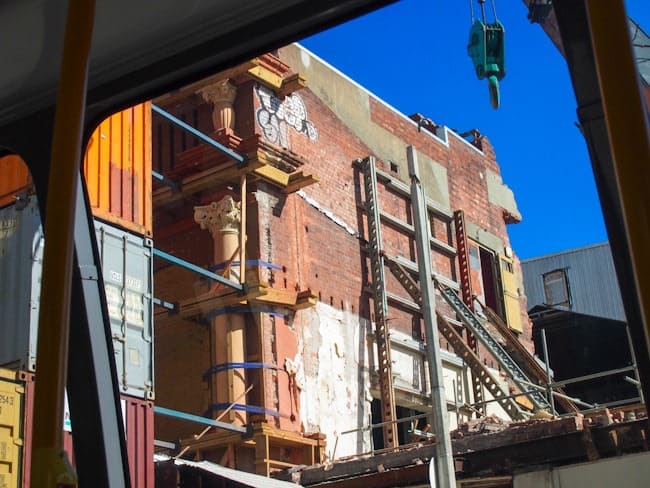
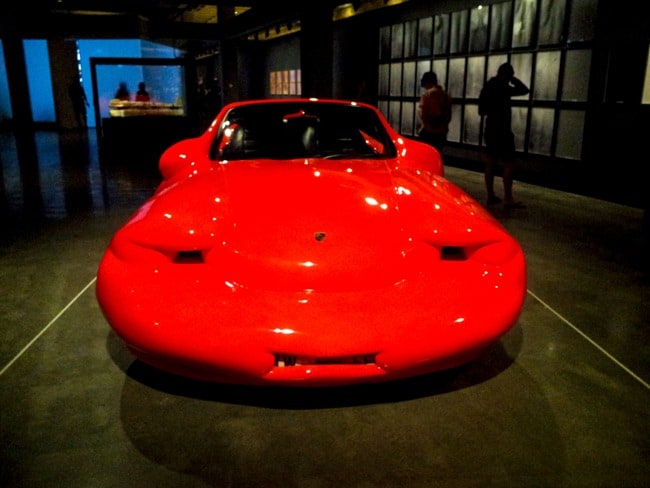

Shit. I had no idea it was so horrible for you guys. I’m glad that you at 250,000 other people made it through this one. And poor Lauren with her GAD. 🙂
I have goosebumps. What an unforgettable and life changing experience. Thank goodness you 2 are safe and sound.
That is an incredible story! I can’t even imagine how’d I react.
That sounds horrific! Glad you’re OK, mate.
Loved this post. We all too often go back to following “the mindless routine” with everyone else instead of examining whether there are ways to be prepared should the worst happen. We often think that surely “the officials” have a plan. I’m hoping you will follow up with a post on what you can do to prepare. Thanks for sharing.
Wow! So glad everything turned out okay.You really captured all the emotions you were feeling throughout the experience. Looking forward to reading about the much less terrifying Songkran festivities.
Good article. Glad we were in Phuket in January… We had a different experience in Hawaii w/tsunami warnings in Hawaii 2010
http://travelpenandpalate.com/2011/06/14/pele-is-home/
Wow I had no idea that was going on, it would be terrifying but I am happy to hear you both are okay.
It’s quite a bit more scary when you’ve not been through it before .. I live in Phuket and was here in 2004. I felt the quake in April 2012 and figured it was a big one, felt similar to 2004. I was at work, at a dive shop near Karon Beach and knew the water had not come anywhere near our shop back then, so I stayed put to check websites for updates… eventually only left in order to avoid the traffic jam that was already building on the road up the hill towards Chalong Bay … made sure I had a laptop with internet connection on the passenger seat of the car… It certainly got people worried, that day. If “it” happened again to this area, I don’t think there would be many casualties though … everyone knows what to do now.
Yeah it was definitely pretty scary – the authorities and most of the locals had a reasonable handle on things, but unfortunately I speak minimal Thai and so didn’t really know what was happening for quite a while.
Everything turned out as well as I might have hoped – and the food and drink was a lovely, much-appreciated touch – but that first hour was tough!
Oh wow that would be terrifying!
Glad there was no Tsunami and that you both got out safe and sound